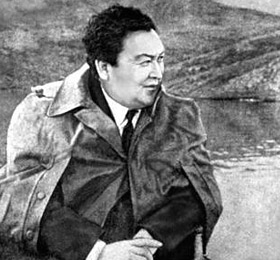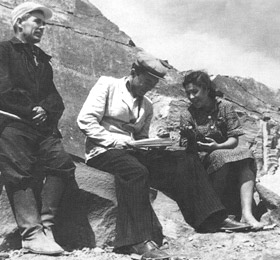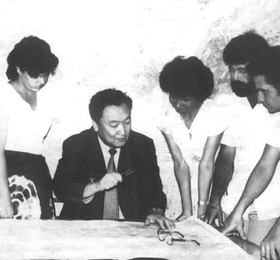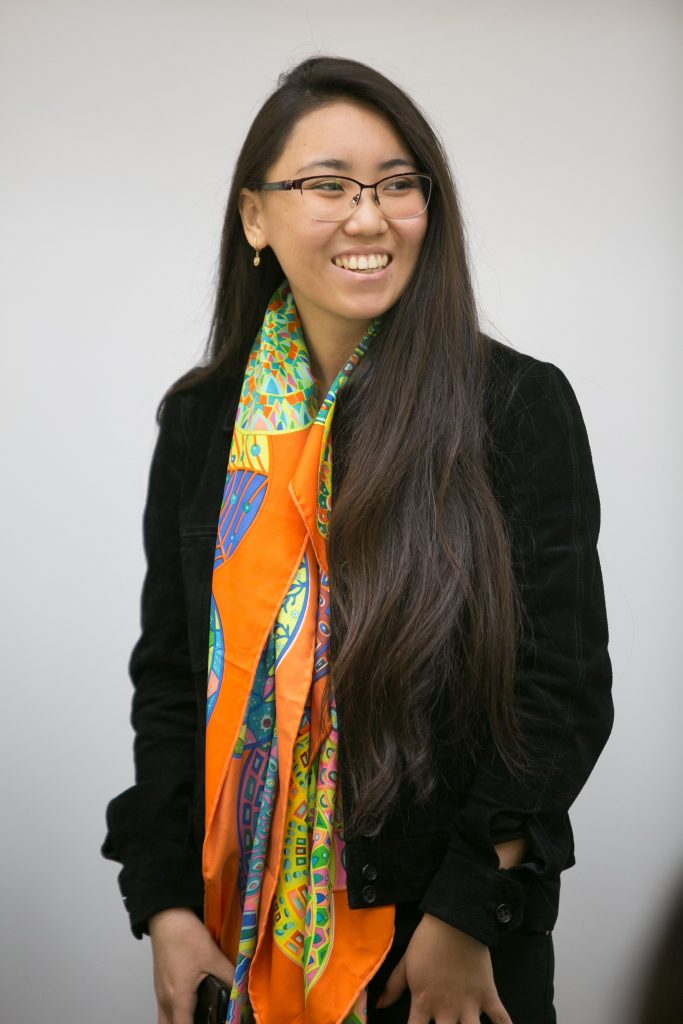Assel Dmitriyeva
In the summer of 2016 Assel (20) won the foundation’s grant to do an research internship at the Intelligent Transportation Systems Laboratory, Massachusetts Institute of Technology. Assel is a student of Kazakh-British Technical University in Almaty.
1. How is it that you chose a specialty that is not so popular with girls?
I chose my specialty, assessing the knowledge I obtained at school. When I was five my dad and I spent a lot of time playing chess. Parents noticed that I was keen on solving analytical tasks, and I’m thankful for them for noticing this right on time. I spent 4 years in a technical school, then I moved to a Republican physics and mathematics school. While in the Olympic reserve on Informatics, I learned to write programs to solve challenging problems. It was obvious that in the future I should continue pursuing this direction. So my choice of mathematical and computer modelling was an informed decision.
2. What was the most difficult or interesting during the competition for the grant?
The process of understanding and putting into words the purpose of why I need to apply for the competition was the most interesting to me. In their last year of an undergraduate study everybody wonders, what did I learn during my college years? I believe that everyone should seize every opportunity to build on their knowledge as much as possible. And this grant contest was a remarkable opportunity as my experience proved it.
3. What was the internship about?
I worked as a researcher at MIT. Director of the laboratory of Intelligent Transport Systems Professor Moshe Ben-Akiva supervised me. I worked to develop and study behavioral models for the integrated traffic simulator SimMobility. In a plain language, based on the large amount of statistical data, we predicted the choice between many alternatives. For example, making a trip to the mountains or visiting lectures using personal or public transport, etc. Thus, it is possible to determine the demand for a particular mode of transport, to estimate its optimal value, and more. Such mathematical models carry important information, which must be an integral part while organizing traffic.
4. The outcomes of the internship for you?
My internship resulted in a predictive model of Boston’s transport system. Further debugging needs to be done in order to publish our results in Transportation Research Journal. During the internship I was able to take part in a series of workshops. I learned a lot of interesting information, because the lectures were given by specialists from various areas. During lunch, I usually conversed with the leading scientists I worked side by side. In general, during last summer, I gained considerable amount of knowledge in the field of traffic flows forecasting and learned how to work effectively in a large multicultural research group. Now I continue to work remotely in the laboratory for Intelligent Transportation Systems as a research assistant. Also I applied for the Master’s Degree program at MIT and received an invitation for an interview. I’ve learned that it is necessary to set goals, however out of reach they may seem at times.
29.10.17, Stories
Seen by: 558





